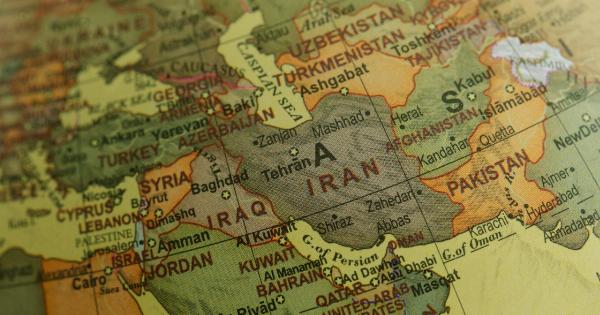With lives brimming with ambition and dreams, it’s no wonder that the pursuit of happiness has become a prevalent endeavor for individuals in today’s fast-paced society.
The desire for contentment and fulfillment drives us to chase after happiness relentlessly, often overlooking the cost and effort required in the process. But is this pursuit really worth it? This article delves into the multifaceted nature of happiness, examining its different aspects and questioning whether the chase is truly rewarding or illusory.
The Complexity of Happiness
Happiness is a whimsical concept that often eludes clear-cut definitions. It encompasses various dimensions such as emotional well-being, life satisfaction, and a sense of purpose.
While it’s commonly assumed that happiness equates to a constant state of joy and pleasure, it is far more intricate than that. True happiness is multifaceted and includes moments of both sadness and joy, as well as the ability to find contentment in the everyday mundane. Understanding this complexity is crucial when questioning the worthiness of pursuing happiness.
The Dichotomy of Happiness and Success
In our society, success is often equated with happiness, leading individuals to strive for external accomplishments in the pursuit of contentment.
However, research suggests that the relationship between happiness and success is not as straightforward as it seems. While success can undoubtedly contribute to happiness, it is not a guarantee. The relentless pursuit of external achievements can sometimes lead to burnout and a lack of fulfillment, ultimately undermining the very happiness we seek.
It begs the question: is sacrificing our well-being for the sake of success truly worth it?.
The Pursuit vs. The Present Moment
The pursuit of happiness often leads us to focus solely on future goals and aspirations, neglecting the importance of living in the present moment.
We become fixated on what we lack, whether it be material possessions, societal recognition, or personal achievements, failing to appreciate the abundance that exists in our lives right now. In this incessant chase, we often miss out on the small, simple joys that can bring genuine happiness. Taking a step back to focus on the present moment and cultivating gratitude might be a better approach to finding true contentment.
The Hedonic Treadmill
Another factor to consider in the pursuit of happiness is the phenomenon known as the “hedonic treadmill.” This concept suggests that humans quickly adapt to positive or negative changes in their lives, returning to a relatively stable level of happiness despite significant events. This adaptation can make the chase for happiness seem futile, as we continually strive for more but find ourselves no happier than we were before.
Understanding the hedonic treadmill can help us question whether the perpetual pursuit of happiness is worth the effort it demands.
The Role of Relationships
In our quest for happiness, relationships often play a pivotal role. Human connections, both romantic and platonic, have been strongly correlated with overall life satisfaction and happiness.
However, maintaining and nurturing healthy relationships can require significant time, effort, and compromise. The pursuit of happiness can sometimes strain these very relationships, as individuals prioritize personal goals over the needs of their loved ones.
Considering the impact the chase for happiness can have on our relationships is essential in evaluating its worthiness.
Finding Personal Fulfillment
While societal norms and external influences often shape our perceptions of happiness, it is crucial to recognize that personal fulfillment is a deeply individual journey.
Each person’s path to contentment will be unique, encompassing different values, passions, and aspirations. By aligning our pursuit of happiness with our authentic selves, we can discover a sense of fulfillment that surpasses societal expectations or external benchmarks.
Shifting our focus from societal constructs to personal growth can greatly impact the worthiness of our chase.
Balance and Self-Care
In the relentless chase for happiness, individuals often sacrifice their well-being, neglecting self-care and work-life balance.
The detrimental consequences of neglecting physical and mental health can outweigh any transient moments of happiness gained from external achievements. Prioritizing self-care and maintaining a sense of balance is crucial in determining whether the pursuit of happiness is ultimately worth the potential costs involved.
After all, true happiness stems from a foundation of well-being and is not solely reliant on external factors.
The Impermanence of Happiness
A sobering aspect of happiness is its impermanence. Emotions, including happiness, ebb and flow throughout our lives. Moments of joy are often fleeting, and the pursuit of constant happiness can become an exhausting and unattainable goal.
Accepting the impermanence of happiness can help us release unrealistic expectations, allowing us to find contentment even in the face of adversity. Instead of relentlessly chasing an elusive state of perpetual happiness, we can focus on cultivating resilience and navigating life’s ups and downs with grace and equanimity.
The Cost-Benefit Analysis
When contemplating the worthiness of chasing happiness, it’s essential to conduct a cost-benefit analysis.
What are the sacrifices and costs involved in the pursuit? Are the potential rewards and moments of contentment worth the effort and potential setbacks? For some, the pursuit of happiness may be a fulfilling and worthwhile endeavor, helping individuals discover personal growth, interpersonal connections, and meaning. For others, the costs may outweigh the benefits, necessitating a shift in focus towards other aspects of life that bring fulfillment. There is no universal answer; it is a deeply personal decision.
Conclusion
In our society, the chase for happiness has become a paramount goal, often overshadowing other aspects of a life well-lived. However, it is essential to critically examine the pursuit and ask ourselves if it is truly worth it.
Happiness, in its complexity and impermanence, cannot be solely defined by societal norms or external achievements. Finding personal fulfillment and navigating the balance between the present moment and future aspirations can guide our journey towards genuine contentment.
Ultimately, the worthiness of chasing happiness lies in our ability to uncover what truly brings meaning and joy to our individual lives.





























